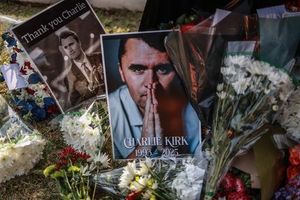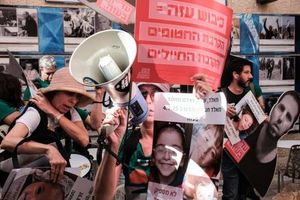On January 23, 2025, Jordan Bardella, the president of the National Rally (RN) and the Patriotes group within the European Parliament, found himself at the center of controversy when he attempted to invoke article 133 of the Parliament’s rules during a speech. His focus: the presidency of Donald Trump and its related policies, particularly the European Green Deal, which he claims threatens industrial growth.
The incident took place during a plenary session, where Bardella aimed to respond to remarks made by Ursula von der Leyen, the president of the European Commission. The confrontation escalated when he was interrupted by the session president, Sabine Verheyen, who deemed his invocation of article 133 inappropriate for the discussion at hand. "But this article does not pertain to outside statements," Verheyen stated, emphasizing the rules governing parliamentary dialogue.
Bardella insisted he be allowed to finish, claiming, "I have 30 seconds left, I will finish if you allow me." Unfortunately for him, his pleas fell on deaf ears, and he was silenced mid-sentence as the session continued without granting him the floor.
His entourage reacted strongly, labeling the event as "censorship" and criticizing Verheyen's handling of the situation as 'scandalous.' They argued it was unprecedented for the leader of such a significant political group to be cut off so abruptly. The frustration did not just stem from this single incident, but from what Bardella's team sees as a pattern of unequal treatment among parliamentarians.
They pointed to how another euro-deputy, Joao Oliveira of Portugal, had managed to speak without similar interruptions during the same session. Even as Bardella’s allies clamored for fairness, the European Parliament defended their actions by stating their adherence to strict procedural rules: article 133 is intended solely for inquiries concerning parliamentary decisions and statements made within the Parliament itself, not external comments.
This clarification fueled Bardella's assertions of bias. Earlier, he had made remarks highlighting the detrimental impact of the Green Deal on European economies, claiming it would lead to economic ruin. "This policy of industrial and agricultural contraction is driving us to our doom," he stated, expressing apprehension about its long-term consequences on Europe’s competitive stance on the global stage.
Following the incident, Bardella took to social media, calling the episode "a serious incident," lamenting: "This violation of parliamentary rights is totally unacceptable and discredits the institution, which is supposed to be a shield for freedom of expression." The statements reflect his belief not only in individual rights within the Parliament but also on the larger debate surrounding governmental transparency and discourse.
Critics of Bardella point to his frequent use of media platforms to advance his political stance, especially surrounding Trump-era policies, as pivotal to his strategy. His outbursts seem calculated to rally support against the European Union's approaches to environmental regulations and economic policies, drawing direct lines between EU actions and perceived threats from the U.S. administration.
Political analysts suggest this incident could have lasting repercussions for Bardella, not just because of the uproar it has generated but due to its potential effects on his political capital moving forward. Many perceive his actions as indicative of broader struggles within the European Parliament to balance varied political ideologies, particularly between right-wing populism and more centrist, liberal viewpoints.
Bardella's assertions of bias and claims of censorship could resonate strongly with his base, galvanizing supporters and prompting debates around freedom of speech within political institutions. Yet it also risks alienation among more moderate factions within and outside the Parliament striving for cooperative dialogue. Amidst such tensions, the European Parliament’s response will be closely monitored for how they manage dissenting voices without stifling debate.
Looking back at the uproar surrounding the incident, it seems to highlight stark contrasts within the European political machine: the aggressive posturing of populist leaders like Bardella versus the institutional rigidity of the Parliament, which aims to maintain order through established rules. The coming weeks will likely reveal how this clash continues to shape discussions on European unity, freedom of speech, and the relevance of parliamentary discourse.



